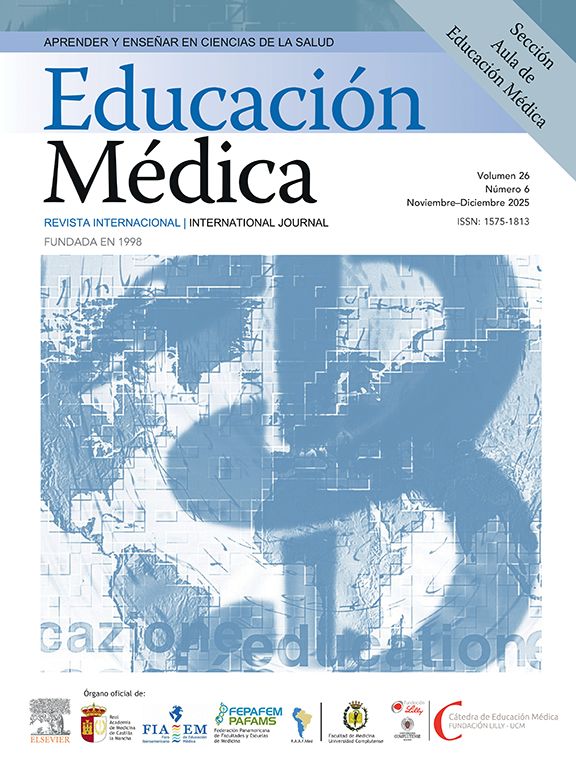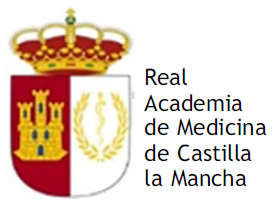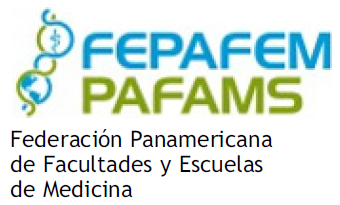The undergraduate medical internship in Mexico is a crucial phase in the education of future physicians, where theoretical knowledge is applied in a real clinical environment, regulated by NOM-033-SSA3–2018. Despite this regulation, there are non-compliances such as inadequate treatment and extended work hours that can affect both the professional development and well-being of interns. The DERIM scale evaluates the respect for human rights during this formative stage, considering aspects such as education and dignified work.
Materials and methodsA quantitative and descriptive study was conducted to assess the perception of human rights among 99 undergraduate medical interns from the University of Sonora in 2023, using a digital survey based on the DERIM scale.
ResultsThe results reflected a generally positive perception of the work environment and respect for rights, although specific issues were identified. More than 10% of participants reported experiences of discrimination, health risks, and anxiety about potential sanctions. Additionally, the majority considered the remuneration insufficient and noted that their schedules limited time for recreational activities.
ConclusionAlthough the majority reported a positive environment, concerns such as discrimination, health risks, insufficient remuneration, and lack of free time were identified. It is concluded that there is a need to improve regulations and working conditions to protect the rights of interns and ensure their professional development.
El internado médico de pregrado en México es una fase crucial en la educación de los futuros médicos, en la que se aplica el conocimiento teórico en un entorno clínico real, bajo la regulación de la NOM-033-SSA3–2018. A pesar de esta norma, existen incumplimientos como el trato inadecuado y jornadas laborales extensas que pueden afectar tanto el desarrollo profesional como el bienestar de los internos. La escala DERIM evalúa el respeto a los derechos humanos en esta etapa formativa, considerando aspectos como la educación y el trabajo digno.
Materiales y MétodosSe realizó un estudio cuantitativo y descriptivo para evaluar la percepción sobre derechos humanos en 99 médicos internos de pregrado de la Universidad de Sonora en 2023, utilizando una encuesta digital basada en la escala DERIM.
ResultadosLos resultados reflejaron una percepción en general positiva sobre el entorno laboral y el respeto a los derechos, aunque se identificaron problemáticas específicas. Más del 10% de los participantes reportaron experiencias de discriminación, riesgos para la salud y ansiedad por posibles sanciones. Además, la mayoría consideró insuficiente la remuneración y señaló que sus horarios limitaban el tiempo para actividades recreativas.
ConclusiónAunque la mayoría reportó un entorno positivo, se identificaron preocupaciones como discriminación, riesgos para la salud, insuficiente remuneración y falta de tiempo libre. Se concluye que es necesario mejorar las normativas y condiciones de trabajo para proteger los derechos de los internos y asegurar su desarrollo profesional.
The training of general practitioners in the healthcare sector is a complex and rigorous process. In Mexico, this process typically lasts an average of 6 years, during which students complete the undergraduate medical internship in their penultimate year and the social service in their final year.1
The undergraduate medical intern is a medical student who has completed most of their academic training and is in the final phase of their degree, typically in their last year before graduation. During this period, the intern engages in supervised clinical practice in hospitals and health centers, applying and reinforcing the theoretical knowledge they have acquired. This stage is crucial in a medical career as it represents the transition from a predominantly theoretical focus to a practical one, allowing the student to take an active role in patient care.2
The hospital where the medical intern will develop for a year is assigned through a ceremony in which students choose their placement, with priority given to those with the highest grades. Various institutions are qualified to receive medical interns, such as the IMSS, ISSSTESON, the Ministry of Health, and private hospitals. To be considered qualified, these institutions must meet standards of infrastructure, supervision, and have the necessary agreements with the corresponding university.
The undergraduate medical internship is regulated by the Mexican Official Standard NOM-033-SSA3–2018,3 which establishes that this stage is essential in the training of physicians. Therefore, it is crucial to strengthen the healthcare services where these internships take place, ensuring that they are equipped with the necessary physical, human, and material resources to guarantee a teaching–learning process that respects and protects both patients and interns.4
Non-compliance with this standard, along with issues such as undignified treatment, mistreatment, excessive working hours, and violations of regulations aimed at undergraduate medical interns, limits their learning process and personal and professional development.5 These problems affect their professional training, resulting in deficiencies in their knowledge and clinical skills, which can negatively impact the quality of care they will provide as future physicians, perpetuating issues in the healthcare system overall. Additionally, these situations are associated with thoughts of leaving the profession, reduced enthusiasm, or regret over their career choice.
The Enjoyment of Human Rights in Medical Interns scale6 is a valuable tool for assessing the extent to which medical interns perceive respect for their human rights during this formative stage. It evaluates 2 key aspects: the right to education and the right to dignified work. Its main function is to identify strengths and areas for improvement in the working and learning conditions of medical interns.
The satisfaction of human rights for medical interns in Mexico has been a recurring concern due to various shortcomings identified in medical institutions: A study indicates that at least 1 in 4 medical interns are unaware of their rights as students, which affects their experience within the educational environment and may impact their well-being.7 The medical education model in some medical units is considered outdated, both ethically and pedagogically. This model violates students' human rights due to unresolved structural problems.8 Several studies suggest that reforms are needed in the medical training system to ensure that interns' rights are respected and to improve their satisfaction and well-being during residency.9 Medical students in Mexico face significant challenges regarding the respect for their human rights, which impacts their overall satisfaction during their medical education. Respecting the rights of undergraduate medical interns is fundamental not only for their well-being during the internship but also for their future in the medical profession. Working conditions and the work environment significantly influence their decision to pursue postgraduate or specialty studies. Therefore, it is essential that the hospital sites where they complete their internships ensure the respect of these rights, allowing medical trainees to fully develop their potential and effectively contribute to the healthcare system.
Materials and methodsThis study is a quantitative, descriptive, and retrospective type, aimed at evaluating the perception of the enjoyment of human rights among undergraduate medical interns (MIP) from the University of Sonora, enrolled during the period from January to December 2023 in the state of Sonora. A total of 99 interns participated in the study.
Before the intervention, an electronic survey was conducted in which participants were informed about the purpose of data collection, the intended use of the information, and privacy protection, excluding any identifiable personal data. Through this survey, informed consent was obtained digitally.
The tool used to measure the study variables was the “Enjoyment of human rights in medical interns” (DERIM) scale, which consists of 26 items and considers 2 factors in different sections with reliability factors of the scores alfa de Cronbach (α > 0.70) distributed in 2 moderately related factors: Perceived harm to enjoyment of human rights (Table 1) and Perceived benefits of enjoying human rights (Table 2). Generally, a Cronbach's alpha coefficient greater than 0.70 indicates good internal reliability, that is, the items measure the same construct consistently.
Items from the first section “Perceived harm to the enjoyment of human rights”.
| Ítem | Statement |
|---|---|
| 1 | I received discriminatory treatment based on my gender, appearance, or any other personal characteristic. |
| 2 | I made diagnostic or therapeutic errors due to a lack of academic supervision during the healthcare activities I performed in the medical unit. |
| 3 | I made diagnostic or therapeutic errors due to a lack of clinical competence. |
| 4 | During the last year of my medical studies (internship, social service, or residency), I experienced sexual harassment or other forms of harassment from my superiors or peers. |
| 5 | During the academic-workday, my health was put at risk. |
| 6 | During my stay in the health unit over the past year, I felt anxiety or fear of being punished or expelled. |
| 7 | During the past year, the public safety conditions in the area where I completed my internship, social service, or residency were a threat to my personal safety. |
Items from the second section “Perceived benefits of the enjoyment of human rights”.
| Item | Statement |
|---|---|
| 8 | I felt an environment of cordiality and respect within the medical unit where I was placed. |
| 9 | In the medical unit where I was a trainee, the teaching-learning process was prioritized over the demand for medical care. |
| 10 | I received support to attend academic activities related to the study plan. |
| 11 | My professors in the medical unit effectively addressed (in person or remotely) the questions I had during the medical care processes in which I participated. |
| 12 | The assistance provided to me by my professors in the medical unit was always with respect and patience, addressing me appropriately. |
| 13 | I received support from teachers and academic authorities for academic work or academic-administrative procedures. |
| 14 | The schedule I followed allowed me to engage in recreational activities. |
| 15 | My professors in the medical unit had adequate working conditions to fulfill their educational role. |
| 16 | My professors or tutors from the Faculty of Medicine were attentive to my academic development in the medical unit. |
| 17 | The grades I received in the course that just concluded (internship, social service, residency) were determined solely based on the educational objectives achieved. |
| 18 | The task assignments I received were appropriate and fair. |
| 19 | The healthcare tasks I received in the medical unit were aligned with the technical-professional training corresponding to my educational level. |
| 20 | The medical unit where I was placed provided me with the necessary materials to perform my work with dignity. |
| 21 | I consider that the hours in my academic-workday were adequate for my responsibilities. |
| 22 | I was able to stop working to attend to needs such as resting or eating during work shifts. |
| 23 | I received supervision during my healthcare activities from the medical unit's staff. |
| 24 | I received adequate feedback on the tasks I performed. |
| 25 | I had motivation, communication, and support from my immediate supervisor. |
| 26 | I received fair remuneration for my work. |
The scale is based on a Likert format to evaluate the level of agreement or disagreement with the presented items. The response options were: Strongly agree (SA), Agree (A), Neutral (N), Disagree (D), and Strongly disagree (SD).
The chosen distribution of responses was selected as it allows for a more precise assessment of perceptions regarding human rights during the medical internship. This format facilitates the reflection of the participants' level of agreement or disagreement with their experiences, enabling a deeper analysis of their attitudes and perceptions, thereby enriching the overall analysis and providing a more comprehensive understanding of the reality experienced by the students.
ResultsAmong the sociodemographic variables analyzed, it was found that the interns had an average age of 24.45 years (±0.86); 75.8% were women, and 24.2% were men. Variables such as marital status were also analyzed, with 97% being single, 99% without children, 44.4% coming from locations different from their usual place of residence, and 57.6% receiving some form of financial support during their internship.
A 100% response participation was achieved from the intervened population, resulting in 99 surveys being completed accurately and truthfully. The results were analyzed item by item, highlighting the predominant and most relevant result for each item. The information was compiled in tables based on Section—Item—Response, according to the level of ‘Agreement’ with the presented statements (Table 3 and Table 4). Finally, the data were represented in graphs illustrating the distribution of responses by item, grouping the answers into three columns with their corresponding categories, respecting the intent of each item (Fig. 1 and Fig. 2).
Frequency of results in the “Perceived harms to the enjoyment of human rights” section.
| Perceived harms to the enjoyment of humans rights | ||||||||||
|---|---|---|---|---|---|---|---|---|---|---|
| Item | Frequency | |||||||||
| TD | % | D | % | I | % | d | % | td | % | |
| 1 | 61 | 61.62 | 19 | 19.19 | 8 | 8.08 | 9 | 9.09 | 2 | 2.02 |
| 2 | 26 | 26.26 | 38 | 38.38 | 11 | 11.11 | 19 | 19.19 | 5 | 5.05 |
| 3 | 30 | 30.30 | 41 | 41.41 | 15 | 15.15 | 11 | 11.11 | 2 | 2.02 |
| 4 | 57 | 57.58 | 22 | 22.22 | 3 | 3.03 | 15 | 15.15 | 2 | 2.02 |
| 5 | 31 | 31.31 | 29 | 29.29 | 13 | 13.13 | 23 | 23.23 | 3 | 3.03 |
| 6 | 28 | 28.28 | 24 | 24.24 | 13 | 13.13 | 25 | 25.25 | 9 | 9.09 |
| 7 | 39 | 39.39 | 42 | 42.42 | 9 | 9.09 | 9 | 9.09 | 0 | 0.00 |
Frequency of results in the “Perceived benefits to the enjoyment of human rights” section.
| Perceived benefits of the enjoyment of human rights | ||||||||||
|---|---|---|---|---|---|---|---|---|---|---|
| Item | Frequency | |||||||||
| TD | % | D | % | I | % | d | % | td | % | |
| 8 | 0 | 0.00 | 10 | 10.10 | 13 | 13.13 | 62 | 62.63 | 14 | 14.14 |
| 9 | 14 | 14.14 | 27 | 27.27 | 21 | 21.21 | 27 | 27.27 | 10 | 10.10 |
| 10 | 6 | 6.06 | 7 | 7.07 | 20 | 20.20 | 51 | 51.52 | 15 | 15.15 |
| 11 | 1 | 1.01 | 6 | 6.06 | 17 | 17.17 | 56 | 56.57 | 19 | 19.19 |
| 12 | 0 | 0.00 | 5 | 5.05 | 15 | 15.15 | 59 | 59.60 | 20 | 20.20 |
| 13 | 3 | 3.03 | 8 | 8.08 | 22 | 22.22 | 46 | 46.46 | 20 | 20.20 |
| 14 | 14 | 14.14 | 24 | 24.24 | 18 | 18.18 | 34 | 34.34 | 9 | 9.09 |
| 15 | 2 | 2.02 | 19 | 19.19 | 17 | 17.17 | 45 | 45.45 | 16 | 16.16 |
| 16 | 9 | 9.09 | 16 | 16.16 | 30 | 30.30 | 34 | 34.34 | 10 | 10.10 |
| 17 | 20 | 20.20 | 15 | 15.15 | 22 | 22.22 | 32 | 32.32 | 10 | 10.10 |
| 18 | 2 | 2.02 | 18 | 18.18 | 21 | 21.21 | 42 | 42.42 | 16 | 16.16 |
| 19 | 3 | 3.03 | 4 | 4.04 | 20 | 20.20 | 56 | 56.57 | 16 | 16.16 |
| 20 | 5 | 5.05 | 12 | 12.12 | 17 | 17.17 | 35 | 35.35 | 30 | 30.30 |
| 21 | 4 | 4.04 | 21 | 21.21 | 16 | 16.16 | 41 | 41.41 | 17 | 17.17 |
| 22 | 7 | 7.07 | 16 | 16.16 | 19 | 19.19 | 38 | 38.38 | 19 | 19.19 |
| 23 | 0 | 0.00 | 11 | 11.11 | 23 | 23.23 | 46 | 46.46 | 19 | 19.19 |
| 24 | 2 | 2.02 | 13 | 13.13 | 26 | 26.26 | 44 | 44.44 | 14 | 14.14 |
| 25 | 1 | 1.01 | 16 | 16.16 | 19 | 19.19 | 45 | 45.45 | 18 | 18.18 |
| 26 | 62 | 62.63 | 13 | 13.13 | 12 | 12.12 | 9 | 9.09 | 3 | 3.03 |
Items 1–7 were distributed as follows:
- •
Green: Sum of ‘Disagree’ and ‘Strongly disagree’ responses.
- •
Yellow: Includes ‘Neutral’ responses.
- •
Red: Sum of ‘Strongly agree’ and ‘Agree’ responses.
Items 8–26 were distributed as follows:
- •
Green: Sum of ‘Strongly agree’ and ‘Agree’ responses.
- •
Yellow: Includes ‘Neutral’ responses.
- •
Red: Sum of ‘Disagree’ and ‘Strongly disagree’ responses.
This distribution is justified by the fact that the instrument is divided into 2 categories. The first, comprising items 1–7, evaluates perceived harms to the enjoyment of human rights. In this category, an affirmative response (‘Strongly agree’ or ‘Agree’) indicates the perception of a violation of these rights. In contrast, the second category includes items 8–26 and evaluates perceived benefits in the enjoyment of human rights. In this case, an affirmative response (‘Strongly agree’ or ‘Agree’) suggests the perception of effective enjoyment of these rights.
Analysis of the survey on perceived harm to the enjoyment of human rights- •
Reception of discriminatory treatment (Item 1): 61.62% of respondents indicated that they “Strongly disagree” with having received discriminatory treatment based on gender, appearance, or other personal characteristics, suggesting that the majority do not perceive discrimination.
- •
Diagnostic or therapeutic errors due to lack of academic supervision (Item 2): 26.26% of students “Strongly disagreed” with having made errors due to lack of supervision, while 5.05% “Strongly agreed,” highlighting divided perceptions regarding academic supervision.
- •
Errors due to lack of clinical competence (Item 3): 30.30% of respondents indicated that they “Strongly disagree,” reflecting that they do not perceive their clinical competencies as insufficient.
- •
Sexual harassment or other types of harassment (Item 4): This item revealed that 57.58% of students “Strongly disagree” with having experienced harassment, while 3.03% reported being “Strongly agree,” highlighting the presence of harassment in certain instances.
- •
Health risk (Item 5): 31.31% of students “Strongly disagreed” that their health was at risk during their academic-workday, although 3.03% “Strongly agreed,” suggesting that some students perceive a significant health risk.
- •
Anxiety or fear of punishment (Item 6): 28.28% of students “Strongly disagreed” with feeling anxiety or fear of being punished, while 9.09% “Strongly agreed,” indicating the presence of fear among some students.
- •
Threat to personal safety (Item 7): 39.39% of respondents indicated that they “Strongly disagree” with the statement that their personal safety was threatened, while 9.09% “Strongly agreed,” suggesting that there are safety concerns in some health units.
- •
Environment of cordiality and respect (Item 8): No student reported being “Strongly disagree” with the statement of having felt an environment of cordiality and respect. A significant 62.63% were “Strongly agree,” reflecting a positive environment in most medical units.
- •
Prioritization of the teaching–learning process (Item 9): 14.14% of students “Strongly disagreed” that their learning process was prioritized, while 10.10% were “Strongly agree,” indicating variability in the perception of the quality of learning.
- •
Support for attending academic activities (Item 10): Only 6.06% “Strongly disagreed” with having received support to attend academic activities, while 15.15% were “Strongly agree,” suggesting that, in general, students perceive a good level of support in this area.
- •
Attention to questions in medical care processes (Item 11): A mere 1.01% of students reported being “Strongly disagree” with having received adequate attention to their questions, while 19.19% were “Strongly agree,” reflecting a positive perception in this regard.
- •
Assistance provided by professors (Item 12): No student reported being “Strongly disagree” regarding the assistance provided by professors. A significant 20.20% were “Strongly agree,” indicating a favorable perception of the support from professors.
- •
Support from teachers and authorities (Item 13): 3.03% of students indicated being “Strongly disagree” with the support received from teachers and authorities, while 20.20% were “Strongly agree,” suggesting that the level of support varies.
- •
Schedules compatible with recreational activities (Item 14): 14.14% “Strongly disagreed” that the schedules allowed for recreational activities, while 16.16% were “Strongly agree,” indicating that some students perceive the schedules as limiting.
- •
Working conditions of professors (Item 15): 2.02% of students “Strongly disagreed” that their professors had adequate working conditions, while 9.09% were “Strongly agree,” reflecting a generally positive perception of the professors' working conditions.
- •
Professors' attention to academic development (Item 16): 9.09% of students “Strongly disagreed” with the attention they received from professors in their academic development, while another 9.09% were “Strongly agree,” suggesting differences in the perception of the support provided.
- •
Evaluation based on educational objectives (Item 17): 20.20% “Strongly disagreed” that their grades reflected the educational objectives achieved, while 10.10% were “Strongly agree,” indicating mixed perceptions regarding academic evaluation.
- •
Fair task assignment (Item 18): 2.02% of students “Strongly disagreed” that the task assignments were fair, while 16.16% were “Strongly agree,” suggesting that some students perceive the workload as appropriate.
- •
Alignment of tasks with technical–professional training (Item 19): 3.03% “Strongly disagreed” that the assigned tasks were in alignment with their training, while 16.16% were “Strongly agree,” reflecting a generally positive perception.
- •
Provision of necessary materials to perform work (Item 20): 5.05% “Strongly disagreed” that they were provided with the necessary materials, while 30.30% were “Strongly agree,” indicating that the majority of students perceive they are given the required resources.
- •
Adequate academic hours for responsibilities (Item 21): 4.04% of students “Strongly disagreed” that the academic hours were adequate for their responsibilities, while 17.17% were “Strongly agree,” indicating a generally positive perception.
- •
Ability to work to meet personal needs (Item 22): 7.07% “Strongly disagreed” that they were allowed to work to meet personal needs, while 19.19% were “Strongly agree,” suggesting that many students were able to balance work and studies.
- •
Supervision during healthcare activities (Item 23): No student “Strongly disagreed” regarding the supervision received, while 19.19% were “Strongly agree,” indicating a positive perception of the supervision during healthcare activities.
- •
Adequate feedback (Item 24): 2.02% of students “Strongly disagreed” with the feedback received, while 14.14% were “Strongly agree,” suggesting that feedback is generally perceived as adequate.
- •
Motivation and support from immediate supervisor (Item 25): 1.01% “Strongly disagreed” with the motivation and support received from their immediate supervisor, while 18.18% were “Strongly agree,” indicating a favorable perception of leadership.
- •
Fair remuneration for work (Item 26): Finally, 62.63% of students “Strongly disagreed” with receiving fair remuneration, while only 3.03% were “Strongly agree,” suggesting that the majority of students perceive the remuneration as insufficient.
The results obtained in the “Perceived detriments to the enjoyment of human rights” section highlight a predominance of responses indicating disagreement with having experienced mistreatment, malpractice, inadequate educational attention, or risks. However, not all results follow this predominant trend.
More specifically, 12% of respondents reported having suffered mistreatment due to gender discrimination (Item 1). Additionally, 27% stated that their personal health was at risk during academic-work sessions (Item 5). Over one-third of the medical interns (35%) reported having felt anxiety or fear of being punished in their health unit (Item 6).
In the “Perceived benefits to the enjoyment of human rights” section, there was a diversity of responses, with several items revealing predominantly negative trends. The medical interns indicated that, in most cases, their education was not prioritized (Item 9). 48% of respondents affirmed that they did not have time for recreational activities due to the length of their academic-work sessions (Item 14). Finally, more than 70% indicated that they did not receive fair remuneration for their work.
It is important to recognize that, although the results suggest a trend toward adequate academic-professional development, the applied survey did not consider certain essential variables for an optimal environment for medical interns. No situation of vulnerability was presented as an isolated case, as multiple instances of the same issue were identified.
The results underscore a deficiency in the compliance with established norms, as none of the criteria assessed in the survey were fully met. The most relevant areas of opportunity found in this protocol include the lack of attention to the teaching–learning process and insufficient remuneration, which stand out as the main problems according to the responses obtained.
Based on the results, it is imperative to implement strategies that actively integrate hospital-based medical educators in creating a fair, safe, and ethical environment to ensure that medical interns can exercise their rights during their training year. To achieve this, it is essential for educators to receive specific training in human rights and medical ethics, enabling them to identify and prevent situations of mistreatment or infringement of interns' rights, ensuring equitable and respectful treatment toward them. This will foster a teaching environment based on equity and respect for human dignity. Additionally, by being informed on these issues, educators will be able to help reduce inappropriate behaviors such as mistreatment, malpractice, and gender discrimination, among others.
Fernandez-Cañedo et al. (2023) observed that at least 1 in 4 resident doctors in Mexico are unaware of their rights as students within the educational-care space.7 This finding is relevant when compared with other studies, such as the one by Vazquez et al. (2024), which highlights that the medical education model in Mexico is outdated, violating both human rights and pedagogical principles, negatively impacting the satisfaction of medical interns.8
In contrast, a study by O'Shea et al. (2021) found that intern satisfaction levels range from 61.9% to 78%, suggesting that practical training and the acquisition of clinical skills are positively valued by students, despite shortcomings in protecting their rights.10 In other regions, discussions about satisfaction and human rights also reflect similar patterns. International studies document situations where medical interns face long working hours, inadequate treatment, and a lack of resources, impacting their well-being and professional performance. However, the key difference in Mexico lies in the absence of clear policies to protect students' rights during their training.
It is also crucial that educators are trained to provide evaluations of interns that do not resort to punishment or fear, which will allow interns to feel safer in their work environment, promoting their academic and professional development.11
Educators should actively participate in the review and enforcement of labor regulations governing interns' working hours and rest periods. Compliance with these regulations is essential to avoid excessive work hours that could compromise the interns' health.
In addition to evaluating medical interns, it is essential to establish clear and regular evaluation mechanisms for educators,12 including specific criteria on respect for human rights, compliance with labor regulations, and active promotion of a discrimination-free environment. These evaluations will help improve educational quality and ensure a safer and fairer environment for interns.13
Finally, in addition to the training of medical educators, it is necessary to implement mentorship and supervision programs that ensure a safe and conducive learning environment for interns.14 It is also essential to develop policies that promote the psychological and emotional well-being of interns, including the reduction of excessive work hours and the provision of emotional support services.15 Among the main issues identified is the lack of fair remuneration. Consequently, it is suggested to reform intern remuneration policies, ensuring that their contributions are adequately valued in economic terms.16
ConclusionThe current regulations for the proper development of medical interns need reform to align with the current demands of students. It is crucial that the monitoring and accreditation of institutions receiving medical trainees be continuous. Implementing regular surveys will allow the identification and addressing of areas for improvement in each hospital headquarters of the health system. The current regulatory framework related to the training of medical interns presents serious deficiencies regarding the enjoyment of human rights. Although medical units must comply with regulations that protect these rights, the implementation is insufficient, and universities do not assume a proactive role in monitoring and protecting them. Furthermore, universities, which should ensure continuous oversight of interns, tend to neglect this responsibility once they enter hospital units. The pedagogical approach is limited, and the well-being and rights of the students are not prioritized, which is particularly concerning given the outdated and sometimes violent medical education model that prevails in these institutions. A more robust regulatory framework is needed, where universities not only provide academic training to interns but also actively ensure their physical and psychological well-being during their practical training.
Medical interns are a fundamental part of the healthcare system, and their training must be ensured in an environment that respects their labor, rest, and professional development rights. It is essential to remember that, although they actively participate in medical care, they are still students in training, not merely a labor force. The proposed strategies centered on interns and educators can transform the learning environment for interns, ensuring respect for their human rights and promoting a more balanced and ethical professional development.
FundingThe authors declare that no funding was received for this article.
















